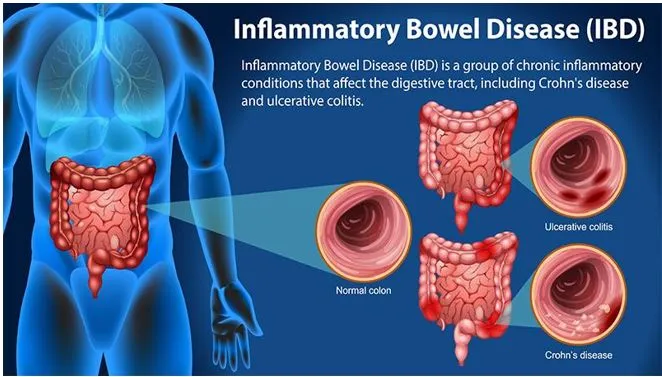

31st May 2024 (14 Topics)
Context
Inflammatory Bowel Disease (IBD) is making headlines due to increasing awareness and diagnosis among children in India.
What is IBD?
- IBD is a chronic condition where the body's immune system mistakenly attacks the cells of the digestive tract, causing inflammation and ulcers.
- Symptoms: This chronic autoimmune condition affects the digestive tract, causing symptoms like fever, abdominal pain, diarrhea (sometimes bloody), and weight loss.
- Types: There are two main types of IBD:
- Ulcerative Colitis: Affects only the large intestine (colon).
- Crohn's Disease: Can affect any part of the digestive tract, from the mouth to the anus.
- Causes of IBD: The exact cause is still unknown, but several factors contribute to its development:
- Immune System Dysregulation: Children with IBD often have a weak or overactive immune system that responds inappropriately to environmental triggers like viruses or bacteria.
- Genetics: There may be a genetic predisposition, as IBD sometimes runs in families.
- Gut Microbiota: The millions of microorganisms in the human gut play a crucial role. Changes in the gut microbiota, influenced by frequent antibiotic use or westernized diets, are linked to IBD.
- Environmental Factors: Lifestyle changes and dietary habits can also trigger or exacerbate IBD.



